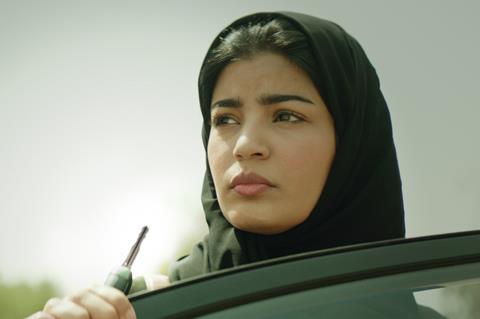
It’s like the lyrics to the Smiths song, ’Heaven Knows I’m Miserable Now’, trotted out every year. The music video stars the forlorn Venice Film Festival artistic director Alberto Barbera, wandering the Lido hopelessly, singing the same mournful refrain: he’s looking for a female film director and he can’t find a female film director. So, this year, he’s going to programme the new film by convicted child rapist Roman Polanski instead. And the “version integrale” of Gaspar Noe’s Irreversible. And add a warm welcome to Nate Parker. Time to turn over.
In a community exhausted by the constant stream of tired excuses as to why there are so few seats at the top table for exciting, by-now-well-established female film directors, this year’s Venice marks a new low. The doors at the Palazzo del Cinema have always been closed to women: this year’s tally of two female directors in Competition, is, in sad reality, a doubling of the lone representative of last year, and in 2017 as well. It’s a figure to be ashamed of: In the last three years, only four female directors out of 63 have competed at Venice – that’s a paltry 6.3%.
This is not to denigrate in any way the much anticipated appearance in Competition by Wadjda and Mary Shelley director Haifaa Al-Mansour with The Perfect Candidate (handled by The Match Factory), and newcomer Shannon Murphy with Babyteeth, from another prestige European sales label Celluloid Dreams (last year’s sole appearance in Competition by a woman was Jennifer Kent with The Nightingale, so clearly Australia is doing something right by Venice). Or to dampen enthusiasm for any films directed by women in any of the sidebars - 15 out of 95 features at Venice are directed by women this year, two of these being co-directors.
But with almost comically scant levels of self-awareness, Barbera has opened the festival’s legs wide for auteurs to further man-spread across the international arthouse landscape. He has reasoned his way through this before. He is fiercely opposed to quotas and claims to screen blind (which, even if true, is unlikely to extend to the entirety of his programming team). The message therefore has been and is still crystal clear from Venice: you don’t cut it, ladies. (Cannes, no trailblazer in this matter, managed four this year in Competition and 19 across the festival, enough to look enlightened in comparison. Toronto hasn’t announced the full line-up this year yet but seems very strong so far, Sundance scored 46% across the festival; Berlin, 41%; London 38% in 2018).
Programming his first festival in 2012 (of the current run, he also directed Venice from 1999-2011), Barbera is assumed to be at the end of his second four-year consecutive term as artistic director of the Venice Film Festival. There has been no word yet as to what will happen next: he is popular and has brought the festival back from the brink with some excellent programming choices and astute wooing of the major studios for the right titles – along with positioning himself at the forefront of the Oscar race, something that titles from directors such as Todd Phillips (Joker), James Gray (Ad Astra) and Steven Soderbergh (The Laundromat) may reinforce this year.
Even Polanski’s J’Accuse, about the 1895 Dreyfus Affair, and starring Jean Dujardin and Louis Garrel, may be a case in point as to Barbera’s amazing taste: it could be the title that finally casts aside the exiled 85 year-old director’s sustained poor run of form over the last decade. But Barbera’s decision to fete the controversial director only grinds salt into the open wound of his dismal track record on representation. Across those eight years of his tenure, since 2012’s progamme, a total of 16 female directors have shown their films in competition, one a co-director. That’s 10.9 percent. Throughout that time, there have certainly been more male-directed turkeys in there than Oscars, so, to use the vernacular, what’s his problem?
To mention the names of female directors in connection with this year’s Venice – and there are many whose films are ready amd went as far as the final shortlist – feels like a pre-judgment of their work. Perhaps some refused to put their films in front of Barbera and his team. Perhaps they went to Toronto. Perhaps they were turned down. Perhaps they’re brilliant. Perhaps not. As ever, time – or Toronto - will tell.
Certainly, during the long hot nights on the Lido, Barbera should have a chat with Polanski – who has found out the hard way how times have changed, most recently when he had to pull out of heading the Cesars jury in 2017 after a storm of outrage from womens’ groups, some of whom may now target his appearance at Venice. Critics and commentators, many of them now – gasp! - female, may also be unforgiving. And perhaps Barbera should consider holding out his finger to see which way the wind is blowing. After all, the same Smiths song references a woman saying: “You’ve been in the house too long my friend.”
Turn over, time’s up.

























No comments yet